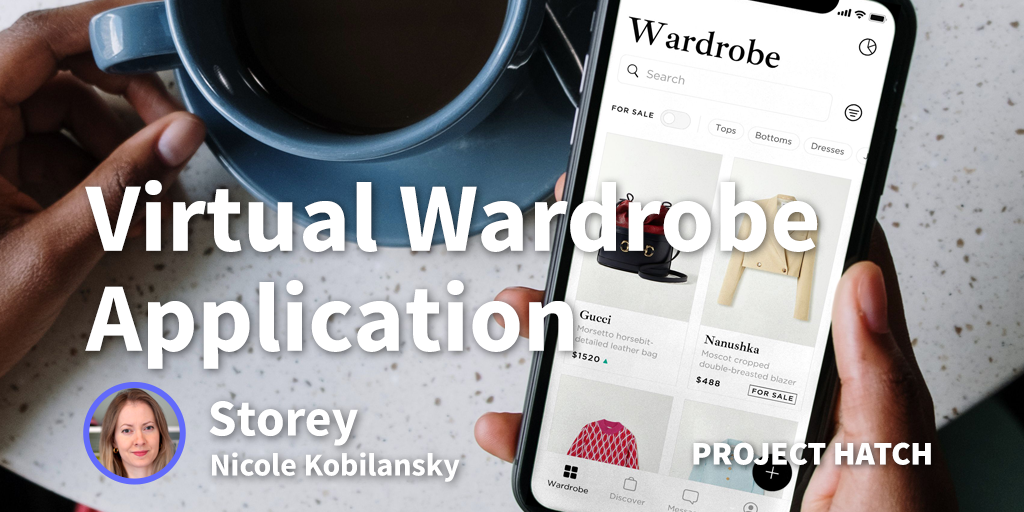Airfox is on a mission to accelerate financial inclusion for the underbanked in emerging economies. We’re a venture-backed, financial technology company that launched in the Harvard Innovation Labs and aims to provide solutions for a problem my family experienced when I was growing up. Airfox is creating an entirely new financial services model that extends access to capital and financial services with an accessible mobile-first solution, banQi.
BanQi is designed specifically for the Brazilian market and the approximately 50 million people who are underserved by traditional banking establishments. Developed by Airfox with strategic partner Via Varejo, a leading national retailer that serves 60 million Brazilians, the banQi application merges low-cost, easy-to-use financial services via a completely mobile platform with in-person service at convenient locations customers already know and love. Via Varejo’s Casas Bahia, a household name in Brazil for electronics and home appliance shopping, will be promoting banQi in nearly 1,000 retail locations.
Why target Brazil?
High fees associated with banking services have left nearly two-thirds of Brazil’s population underserved or completely unbanked and operating in a cash-based economy.** **The most commonly cited barrier to bank account ownership is the lack of enough money required to open and use one. Airfox is shifting the financial paradigm in Brazil’s emerging market by providing underserved populations with access to fair and affordable services built on an inclusive digital infrastructure.
In Latin America, around 70% of people still have no bank account, but over one billion of the world’s 1.7 billion unbanked adults own a mobile phone, and Latin America has one of the highest adoption rates of smartphones globally.** **Airfox’s banQi app is tailored to common low-priced mobile devices. It’s lightweight and consumes less data than other fintech solutions. BanQi also offers convenient low-fee services and cash-back rewards, and in the future plans to facilitate accessible microloans at more reasonable and accessible rates.
On a more personal note, bringing financial inclusion to Brazil is important to me because my family and I are Brazilian immigrants, and I witnessed first-hand how my parents struggled to access basic financial services before we came to the United States.
Who is your target demographic?
Airfox’s banQi app serves the everyday user who otherwise wouldn’t have access to financial services in Brazil. A recent example of a real user that comes to mind is Dominique Cruz, a single-mother who lives in Brazil with her parents and daughter.
As a small business owner, Dominique was quickly overwhelmed by the financial barriers faced by many in Brazil — absurdly expensive fees to complete payments, interest rates as high as 400%, snail-paced queues at the only two bank branches in her neighborhood, and failed attempts to deposit and withdraw from ATMs. Dominique explained to our team that the banQi app has significantly changed her financial reality. “The app has made my life a lot easier,” she shared. “I’m able to stay on top of my daily finances.” Stories like that are the reason we’re working to continue growing our user base in Brazil. It’s an amazing feeling knowing that the work we do every day is making a really positive difference in so many lives.
What motivated you to start Airfox?
When I set out to start Airfox, I asked myself the same questions that spur countless tech start-ups: “What problem can I solve? What sort of impact do I want to make?” For me, the answers were intensely personal. I grew up in Brazil, where income disparity is both profound and highly visible.
I experienced first-hand the struggles people face when it comes to gaining access to capital. When I was little, my parents were starting their own businesses and money was tight. I remember occasions when my mother took all of her jewelry, as well as a gold Cruzeiro team necklace she had gifted me, down to a local pawn shop so she could get a loan. The pawn shop proved to have more accessible and better-quality loans than conventional banks, which is ultimately why my mom preferred it. This type of experience is not uncommon in Brazil, where the majority of people cannot surmount age-old obstacles (such as unreasonable minimum deposit requirements, and high fees) to economic mobility.
Also, despite being at a top-tier university and having an outstanding post-grad job offer from Google, as an immigrant student at UC Berkeley I did not qualify for any federal or private loans. This further motivates me to create new dynamic credit models that are inclusive to everyone, even those who don’t meet archaic credit models or are considered “thin-files.”
My parents’ boldness, like that of many immigrants, is what inspired me to become an entrepreneur. However, part of my journey into entrepreneurship was also out of necessity. I had to work to put myself through college and to do so meant co-founding a startup as a student. More deeply, my upbringing catalyzed me to build companies that create social impact and double bottom-lines, rather than just pure profits.
What was the most difficult thing you faced when you first started your business?
Funding is always the most challenging part of starting a business. Less than 1% of minority entrepreneurs are funded, so the competition is even more intense. There are several factors that contribute to creating the massive barrier to diversity in entrepreneurship. One is that most minority entrepreneurs don’t have a safety net – they come from poor families and if they graduate college, it isn’t practical for them to give up working at Google, Goldman, McKinsey, etc. to risk starting a company. Once they start climbing the corporate ladder, they often prioritize helping their families financially.
Frankly, I also believe that the lack of diversity among venture capitalists creates a cognitive bias towards people from certain backgrounds, colleges, and ethnicities. I believe this is slowly changing, but more needs to be done, and change needs to come from the top.
The managing partner at One Way Ventures, venture capitalist Semyon Dukach, is a fellow immigrant who is dedicated to investing in tech founders who were deeply shaped by our shared experience. He understood my passion to build Airfox early on, and his support was vital in helping my team overcome the barriers faced by immigrant entrepreneurs.
Any insight into supporting the hiring process and growth of a startup?
Airfox has a headquarters in both São Paulo, Brazil and Boston, MA, which has been a significant advantage for hiring and growth. In PwC’s 2018 Brazil FinTech Deep Dive report, 70% of Brazilian executives surveyed said that it’s difficult or extremely difficult to find professionals with digital skills. Unlike other fintech companies facing talent shortages in Brazil, Airfox’s engineering and development operations in Boston draw from the region’s abundance of top technology talent to advance our platform. Over the past year, Airfox has seen its headcount grow over 200%. Location can be an important factor for startups.
What advice do you have for immigrants that want to pursue the path of entrepreneurship?
During one of the hardest years of my life, my father shared a piece of wisdom that has stuck with me: “If there is no battle, there is no victory.” I have lived this wisdom by persisting towards a greater purpose, even in the face of fear and challenge. Ambiguities and struggles are inherent aspects of the immigrant life story, as there is no safety net and nothing is guaranteed – but that is what makes us different, that is what gives us strength and the ability to find deep meaning in the work that we do. Creating a start-up is hard, but there is nothing more meaningful if you truly believe in what you are doing. As a founder, remind yourself everyday about the immense responsibility that you have in your journey to fight for your family, community, customers, and employees. Never forget where you came from and even if you succeed to the greatest heights, don’t let hubris blind you. Stay humble.
| Company Name: | Airfox |
|---|---|
| Founder: | Victor Santos |






